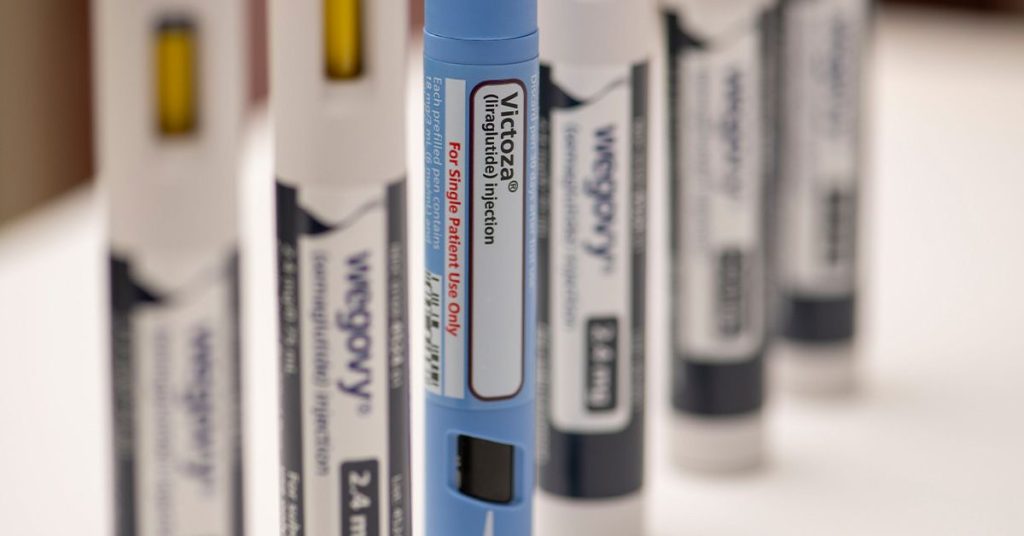Researchers at Cedars-Sinai have conducted a study suggesting that patients should stop taking certain weight management medications, such as Ozempic and Wegovy, before undergoing endoscopy procedures to reduce the risk of aspiration pneumonia. These drugs, which are glucagon-like peptide-1 receptor agonists, may lead to a higher chance of developing aspiration pneumonia due to their impact on digestion and food retention in the stomach. Aspiration pneumonia occurs when foreign substances are inhaled into the lungs, leading to infection and requiring treatment with antibiotics. While this condition is rare in healthy individuals, it is more common in those with underlying health issues.
Endoscopies are medical procedures in which a tube-like instrument is inserted through the throat to observe organs in the body, such as the esophagus, stomach, and small intestine. The weight management drugs Ozempic and Wegovy work by slowing down digestion, extending the feeling of fullness, and reducing food intake, which can result in food staying in the stomach for longer periods. This extended presence of food in the stomach may increase the risk of aspiration during procedures that require sedation, as the food could reflux back into the throat and lungs. As a result, patients on these medications have a 33% higher chance of developing aspiration pneumonia compared to those not taking these drugs.
Medical director Ali Rezaie explained that patients taking weight loss medications like Ozempic have a greater likelihood of retaining excess food in their stomachs, even after fasting before procedures. This food retention can lead to aspiration during sedation, potentially causing breathing problems and inflammation of the lungs. While the overall risk of aspiration is low, temporarily holding these medications prior to procedures can reduce the risk by 33%. Jared L. Ross, a professor and medical director not involved in the study, highlighted the importance of discussing the risks and benefits of these medications with healthcare providers before undergoing surgical interventions.
The study analyzed data from nearly 1 million patients who had undergone upper or lower endoscopy procedures in the United States from 2018 to 2020. However, it did not control for patient age, which could impact the likelihood of regurgitating stomach contents and developing pneumonia from aspiration. Ross emphasized the need for further research to assess patient risk based on age and the importance of discussing medication use with anesthesiologists before procedures. Holding weight loss medications like Ozempic prior to sedation for endoscopic procedures can significantly decrease the chance of aspiration, potentially saving lives and reducing hospitalizations.
Rezaie stressed the importance of being aware of potential side effects of weight loss medications like Ozempic while acknowledging their health benefits. He emphasized the need for vigilance in understanding and mitigating the risks associated with these drugs to maximize their positive effects on society. With millions of endoscopies performed annually in the U.S. and a substantial portion of the population using these medications, temporary suspension of weight management drugs before elective procedures could be a crucial step in preventing aspiration pneumonia and ensuring patient safety.


